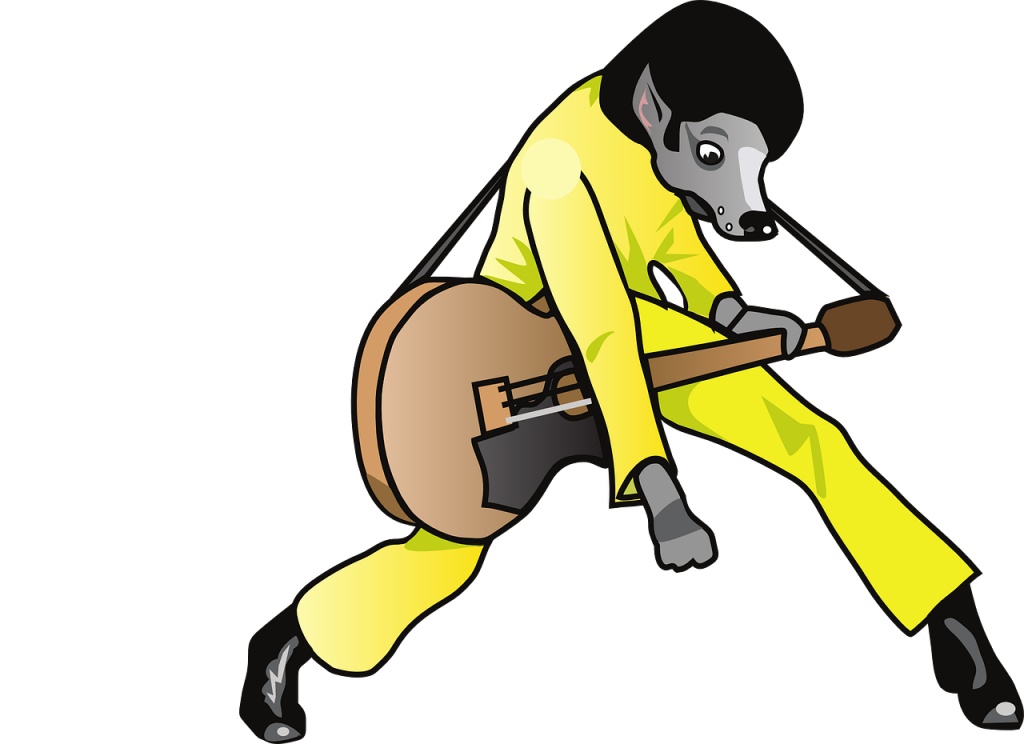Calm Your Dog With Relaxing Puppy Music
Music and puppies can be a therapeutic, positive combination. Soothing music help to cover scary noises like fireworks and thunder. Even recent studies show that playing relaxing puppy music can help reduce stress in puppies, especially when they are in animal shelter homes.
Turning on some good music relieves them from their pain.
This kind of music can help your puppy to bark less, lower the stress hormone level cortisol, and lower respiratory rates. There is no question that music therapy is used nowadays as a remedy for anxiety and combat sleeping disorders. Also, the same technique is used for your puppy.
Do Puppies Like Music?
Puppies like music, but the type makes the difference. Music with fast tempos and high frequency charge the canine nervous system in dogs. In short, music that helps your puppy to relax is the best choice. And, it is seen that they love the kind of music their owners tend to listen to most.

When Should YOU Play Relaxing Music?
There are some situations when your puppy can benefit from listening to soothing music. Those situations include the following.
- During the period when you bring the puppy for the first time in your house
- Whenever your puppy stays at home all alone
- During fireworks or harsh thunder
- Trying to help a restless puppy to fall fast asleep
- At a vet clinic during an examination
- While traveling in a vehicle to ease travel anxiety
Keep in mind that if you are playing the music for your puppy suffering from separation anxiety, make sure that you are playing the music both in your presence and absence. If you don’t, your puppy will get a false impression that when you turn the music on, it means you are leaving.
That way, it adds more stress instead of relaxing.
Music Therapy For Your Puppy:
You can soothe your fearful or hyperactive puppy with relaxing music or distract with natural sounds like birds chirping in a distance. Lethargic pets can be energized with fast music to help them get up and bounce to the beat. Remember that puppies are more sensitive to music than people.
Puppies can hear acute sounds with clarity. So, you don’t have to put the music loud to get the effect. Physical changes in the body get affected because of sound. Also, brain waves change with variations in different kinds of sounds.
Certain types of music having a pulse beat of about 60 can slow the brain waves.
As such, the listener feels more peaceful and relaxed. The consciousness level gets shifted to a more alert state. The breathing rate slows a bit, which helps to relax the mind and improve metabolism. The heart too wants to feel the pulse of the soothing music.
Fast rhythm energizes the listener because the blood pressure rises and the heartbeat increases. Whereas, slower tempos help to calm. Listening to relaxing puppy music releases endorphins, which are natural painkillers produced by the brain. It reduces the stress hormone in the blood.

Helping Your Puppy With Soothing Music:
The simple and easy way to treat your puppy with music is by turning the music on, or by turning the radio on. Choose the music you like the most. It is seen that pets respond best to the music their master enjoys. And, that’s because of the amazing bond they share.
The same thing happens to your pup.
When you tend to play your favorite music genre often, your pet connects the sound of the music and your presence. Hence, playing the same piece of music in your absence will remind them of you. The therapy greatly helps in easing problems like anxiety from a separation.
Music with a steady, slow rhythm helps to calm irritated puppies. Also, this kind of music helps your pet calm their muscles and increase the range of motion. It takes a mere 15 to 20 minutes for the music to have a relaxing effect. Most puppies enjoy classical music or Mozart.
Ballad-type music, nature sounds, soft jazz, southwest music along with flutes, or new age music can relax your agitated pet. Ensure that the music is melodic, and the tempo slow and even. You can play the music whenever you feel your pup is in distress.
You can even play music all day long and keep them calm.
To energize your puppy, turn up the volume. Moderate music with driving beats can energize your pet’s emotions and encourage them to lift depression and exercise. With rock music, you can even get your pet’s tail moving. Play for at least 15 to 20 minutes and get your puppy in the right mood.

Using Relaxing Music to Help Reduce Excessive Barking:
When you find your pet barking at random noises outside the home, you can turn on the music to help mask outer noise. It is normal for dogs to bark whenever they hear noises from outside. Noise masking can be an amazing management tool.
That way, you can significantly reduce the amount of barking your puppy does while they are alone, or during the night when everyone is asleep. This is something you and your neighbors will cherish.
Use Relaxing Music to Make Your Puppy Familiar With the Scary Sounds:
For puppies who fear certain noises like fireworks and thunder, or going through an anxious period, you may need to work with a licensed dog trainer to start a counterconditioning plan. But, for puppies who are yet to show signs of fear and anxiety, it is worthy to introduce them to noises and sounds in a positive way.
That way, it can help prevent noise phobia or other forms of anxiety from growing. Although there are lots of therapies and training sessions for eliminating such risks. But, the best way is to inculcate a habit of listening to relaxing puppy music. This is perhaps one of the best treatment to prevent anxiety disorder.
Conclusion:
Playing relaxing puppy music regularly can help your pet to identify the sound alongside your comforting presence. Even when your puppy isn’t suffering from anxiety, music can help when you need to step outside your home.

Leave a Reply